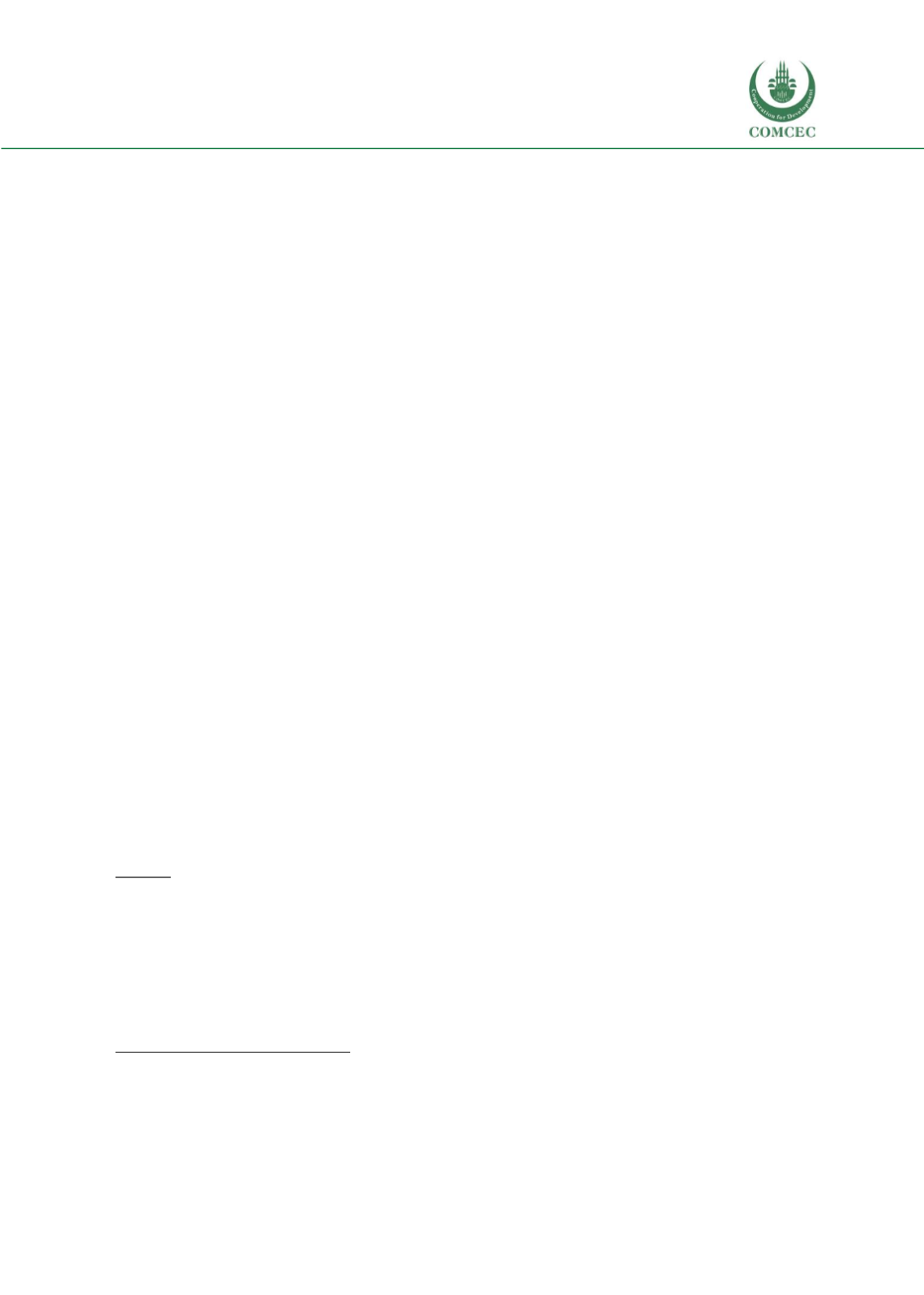

Education of Disadvantaged Children in OIC:
The Key to Escape from Poverty
249
the system. Examples of access to school projects include two nation-wide “Learning-for-All”
campaigns which were conducted to encourage enrolment, identify out-of-school children and
provide referral and registration support.
The JRP’s education plan also includes remedial/catch-up classes for children who have missed
out on weeks or months of schooling as well as access to improved and diversified certified
alternative learning opportunities for both children and youth
524
. Examples include the joint
MoE-UNICEF “Catch up” program, a non-formal education program for children who have
missed 3 or more years of education and so cannot enrol in formal schools. With its specially
designed curriculum, one year of ‘catch up’ schooling corresponds to two years of formal
schooling, with three grades covering 6 years of schooling. Depending on how many years of
schooling the child has missed, he/she enrols through one or more of those catch up grades. The
catch up classes are accredited. It is even possible for a child to enrol in a public school upon
completion and passing a placement test. These courses are complementary to the existing non-
formal education programs that are run by the MoE through Questscope.
One of the largest informal education program in Jordan is the UNICEF supported Makani “My
Space”
525
. With an estimated 50,000 school-aged Syrian children not eligible to join the formal
school system, the Makanis constitute an alternative, innovative approach to expanding learning
opportunities for out-of-school children. Launched in 2015, Makani centres offer psychosocial
support services, learning support services, life skills and innovation labs for adolescents and
young people, as well as integrated WASH services. They include a community outreach
component and referral systems
526
.
Makanis are operated by NGOs and community-based organisations with specially trained staff,
both in camps and across hosting communities. A Bayanati monitoring system, developed in
2016, is operationalized in over 130 Makani centres. It captures information on children’s
profiles and their attendance to services. This multi-sectoral approach to support children and
young people is innovative, has been evaluated and proven effective and as such is being scaled
up across the country.
Quality
Teacher training.
A large focus of the policies under ERfKE, continued under the HRD strategy,
is on improving quality by reforming teacher policies/professional development as well as
updating the curriculum, assessment and learning resources. In 2002, the MoE developed a
grading and career progression scheme for teachers called ‘Instructions on Teachers’ Ranks’ and
in 2010, both the Teachers Policy Framework and the Framework of Leadership standards were
created
527
. These frameworks focus on teacher development and on linking career progressions
524
MPIC (2017)
525
UNICEF 2016 TOR for Makani Assessment Review
526
https://www.unicef.org/jordan/overview_10143.html527
NCHRD (2016)
















